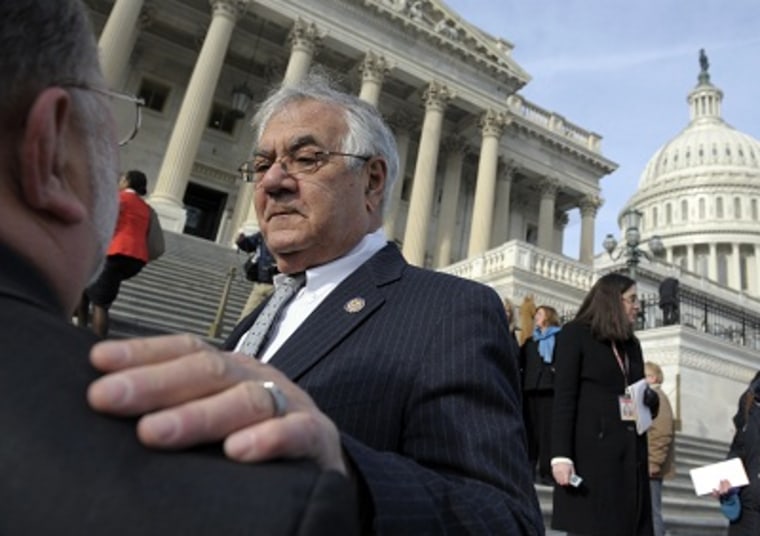Since 2001, the national defense budget has nearly doubled from $287 billion to $530 billion, an amount that does not include the price tag of the wars in Iraq and Afghanistan. The Washington Post points out that in 2011, the country had spent about $718 billion on defense and international security assistance, approximately $729 billion in 2012, and U.S. defense spending is expected to fall to $716 billion in 2013. More costly than Medicare, these costs will take up a majority of Chuck Hagel's time as Defense Secretary–managing the defense budget.
Outgoing Defense Secretary Leon Panetta has already approved cutting half a trillion dollars from the defense budget over the next decade, and if that were to become fully effective, the defense sequester would double, although some members of Congress have said the defense cuts in the sequester should be lowered or even altogether averted.
In an interview with msnbc's "The Last Word," former Massachusetts Congressman Barney Frank offered an anecdote about Leon Panetta's view on defense spending.
“Leon Panetta is one of the best people that I’ve served with. I just think he’s wrong on this one. Leon Panetta–when he took office–said you know, we can’t let them hollow out the military budget. And he said, ironically, you know we haven’t hollowed out the military budget after World War I, World War II, Korea, Vietnam and then he said, we hollowed out the budget after the Cold War. I pointed out that he had been the budget director at that time. He was Bill Clinton’s budget director in ’93 right after the Cold War ended. We stopped saying that but the fact is we didn’t hollow it out. We’ve had a very strong military. There’s room to cut further."
The United States has spent 20% of its federal budget on defense in 2011, and the U.S. has spent more on defense than the next 13 biggest-spending nations combined, including China, Russia and the United Kingdom.
Historically, defense spending has spiked during wars (such as the Korean War, Vietnam, and the Cold War) but were all followed by a downsize. But after 9/11, defense spending soared to unprecedented levels, and the cost of the Iraq and Afghanistan wars took spending to another level.
msnbc policy analyst Ezra Klein writes, "So where did all the new spending come from? Well, largely from the post-9/11 defense build-up." Barney Frank agreed with Klein on this point: "It was only until after 9/11 that George Bush and the neo-conservatives–Cheney and the others–were very successful in getting terrorism to be the substitute as the existential threat for Nazism and Communism. It clearly is not."
Frank added, "I think it took a while for the American people to realize this, but they now understand–there is no threat of that sort. That doesn’t mean we should be weak, but it means we could get by with a lot less…I believe both the president and the Republicans understand public opinion is shifting here."
The Stimson Center conducted a survey last spring and found that 62% supported reducing defense spending, and that 78% of Democrats, 52% independents and 49% of Republicans support it. As voters have expressed support for cutting military spending more than the sequester would, Frank supported further defense cuts and told Klein Monday night that "the American people now are ready for this sensible reduction."
